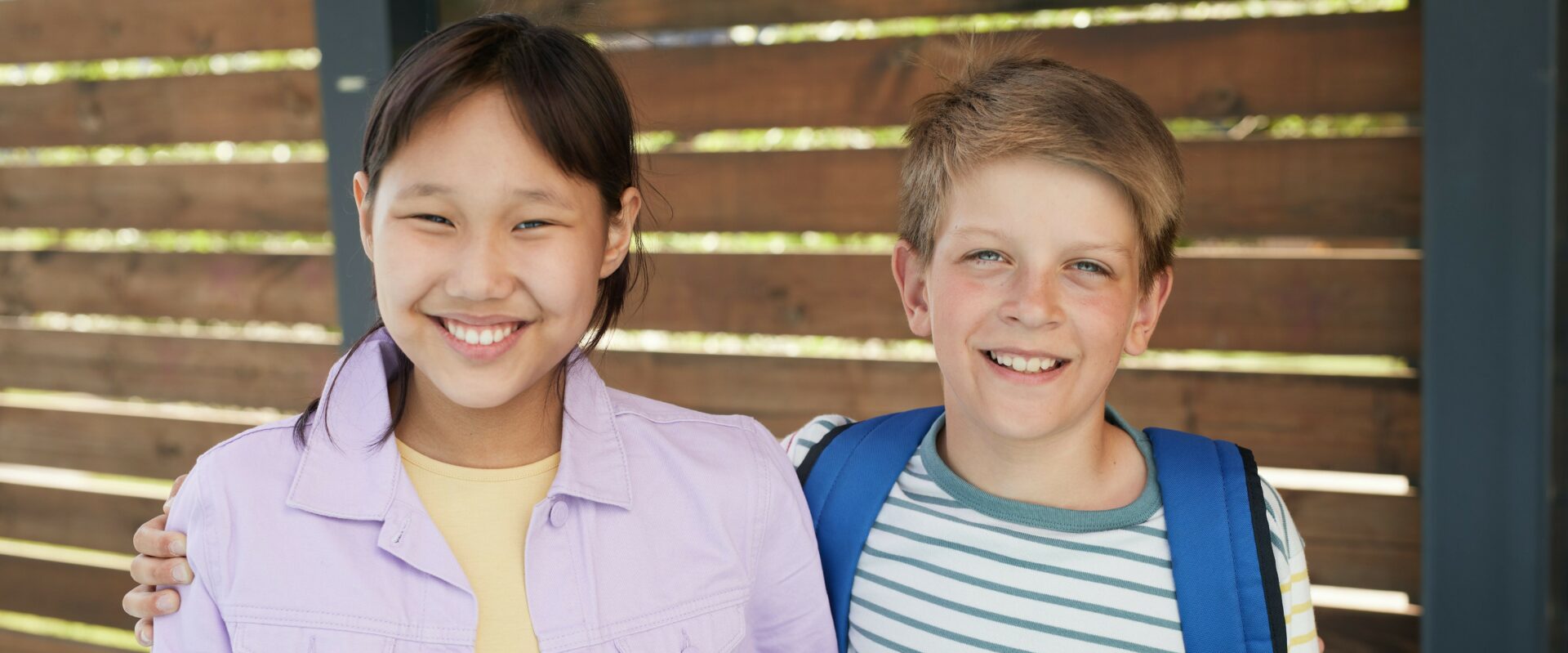Your child’s friend is grieving the death of a family member or someone else (maybe even a pet) who was close to them. Your child wants to be a good friend but has no idea what they’re supposed to say or do to help. So how can you, as their parent or caregiver, guide them on how to be empathetic and a good friend?
Here are five ways to guide your child on how to be Grief-S.M.A.R.T. when it comes to supporting someone who is grieving:
Say the name.
Make no assumptions.
Ask for stories.
Reach out.
Talk less.
1. Say the name.
Kids can get nervous about bringing up the person who died. They may think, “If I bring up the person who died, I’ll make my friend sad. But most grievers will tell you that hearing the person’s name is actually comforting because it means the deceased hasn’t been forgotten by others. Your child may not use the person’s name if, say, it was the parent of the friend who died, but they can say, “I just heard about your mom/dad, and I was so sad when I found out…”.
2. Make space.
The feelings associated with grief can be overwhelming for anyone, and especially for kids. Young people often need a break from the heaviness and drama of loss by engaging in normal routines and interactions. Encourage your child to suggest activities or plans in the ways they normally would. While the griever will likely need a safe space to be with their sadness and heartbreak, they may also need the laughter and relief from their grief that their peers naturally provide. All of those feelings are normal and require space.
3. Ask for stories.
Young people often tell us that one of the most painful parts of experiencing the death of their person is that there will be no new stories about them. So it often feels good retelling the stories they do have; your child can ask their friend to tell you about their person. They might ask something like, “What did you like to do with your dad?” It can also be a wonderful gift to hear new stories of the person who died. If your child happens to have one, they can start by asking their grieving friend if they’d like to hear it first, so the friend has a choice in the matter.
4. Reach out.
Too often we hear that friends, families, peers, and colleagues stop checking in with grieving people within the first three months of the death. Sometimes it’s even just days after the funeral. Grief changes but it does not go away. So let your child know it would be thoughtful to check in with their friend who is grieving months after the funeral (even sticking a reminder in their calendar). They can text or say, “Hey, just wanted to see how you’re doing. I’m here if you need to talk.”
5. Talk less.
One of the reasons people sometimes stop reaching out is because they don’t know what to say or how to make the griever less sad. Let your child know they can’t make the person not be sad. And they can’t solve anything; there’s nothing to fix. The best way to be there for the person grieving is to ask them how they are doing and just listen. That’s it, and it’s plenty.
When to be concerned:
Because grief can take on so many forms, it can be difficult to know when to be worried about a grieving friend. Being sad, even for a very long time, is normal. But talking about self-harm or suicide is a sign that adults need to get involved. Adults should also be involved if their friend begins engaging in risky behaviors that could lead to serious injury, such as dangerous levels of alcohol or drug use. Involve the friend’s caregivers, school counselor, or other trusted adult that can help provide the resources and support that are needed to keep that child safe.
 Brie Overton, Chief Clinical Officer at Experience Camps, is a doctoral candidate at the University of Missouri – St. Louis in the Department of Counseling and Family Therapy, where she educates and supervises master and doctoral level students on grief-specific issues in counseling. She is a Licensed Professional Counselor and specializes in anticipatory loss, grief and bereavement, life transitions, and working with underserved populations. She is a member of the Association for Death Education and Counseling and has worked as a clinician and Clinical Director for Experience Camps since 2016.
Brie Overton, Chief Clinical Officer at Experience Camps, is a doctoral candidate at the University of Missouri – St. Louis in the Department of Counseling and Family Therapy, where she educates and supervises master and doctoral level students on grief-specific issues in counseling. She is a Licensed Professional Counselor and specializes in anticipatory loss, grief and bereavement, life transitions, and working with underserved populations. She is a member of the Association for Death Education and Counseling and has worked as a clinician and Clinical Director for Experience Camps since 2016.
